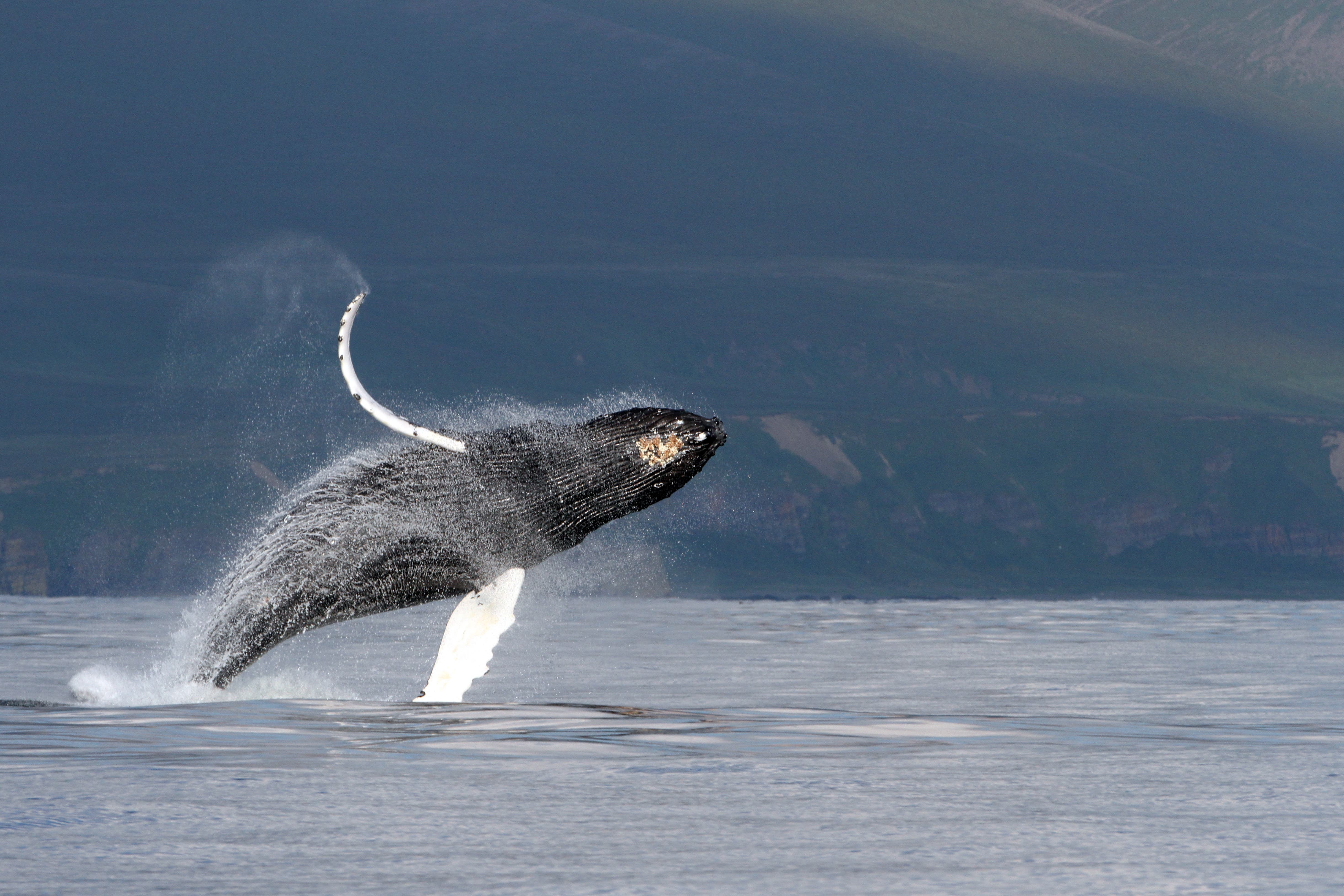Human impact on ocean increasing pressure on dolphins and whales, says charity
Researchers found an increase in common dolphin sightings in the English Channel and Hebrides, and a decline in white-beaked dolphins in the Hebrides.

Researchers have warned that human impact on the ocean is putting increasing pressure on dolphins and whales, and their ecosystems.
The UK whale and dolphin conservation charity Orca recorded 55,604 whales and dolphins in oceans worldwide in 2023 as part of a marine survey covering 330,000 kilometres with the support of volunteer citizen scientists.
They analysed the data alongside previous Orca surveys since 2017, finding a distinct increase in common dolphin sightings in the English Channel and Hebrides, and a parallel decline in white-beaked dolphins in the Hebrides.
Despite growing awareness of human impacts on the ocean, the pressures continue to pile onto cetaceans and the ecosystems they inhabit
The team said this was likely to be associated with increased sea temperatures and shifts in prey distribution, resulting in white-beaked dolphins moving to their favoured colder waters and common dolphins becoming more at home in the warmer UK waters.
Sally Hamilton, Orca chief executive, said: “Despite growing awareness of human impacts on the ocean, the pressures continue to pile onto cetaceans and the ecosystems they inhabit.
“However, scientific progress and management lags behind the fast pace of these growing threats and an up-to-date picture of cetacean distribution and abundance is critical in order to manage these threats and mitigate their impact as much as possible.
“Citizen science at a large scale is essential to step up monitoring to match management needs and meet conservation goals. Everyone who cares about whales and dolphins can play an active role in safeguarding their future.”
The new findings would help to inform decision making on conservation measures globally, Orca said.
The organisation added that they would build on research from the ongoing South Atlantic Survey, which it was undertaking alongside the government of South Georgia and the South Sandwich Islands, British Antarctic Survey and HX.
This survey had already discovered that humpback whales near the Antarctic Peninsula were present in far higher numbers earlier in the season than anticipated, while the waters around Elephant Island were becoming a hot spot for fin whales.
It comes as environmental organisations also warn that long-lasting toxins known as “forever chemicals” have been found in whale meat samples tested in Norway.
Whale and Dolphin Conservation (WDC), the Animal Welfare Institute, and Norwegian environmental group NOAH sent eight raw and frozen samples of minke whale meat purchased online and from grocery shops in Norway in their original packaging to a lab in the region of Tromso for independent, expert analysis.
More and more research shows that dangerous toxins are ending up in our marine ecosystems, and thus on our plates
It found that a PFA chemical, called perfluorooctane sulfonate (PFOS), was present in all the whale meat samples tested, causing concern about the health of populations who consume the meat.
PFAs can take centuries to break down in the environment, meaning they can accumulate in the bodies of living organisms, and have been linked to severe health conditions.
The environment groups are urging UK tourists visiting Norway not to eat the meat, which is available in restaurants and tourist shop snacks.
Lottie Pearson, campaign co-ordinator at Whale and Dolphin Conservation, said: “More and more research shows that dangerous toxins are ending up in our marine ecosystems, and thus on our plates.”
Bookmark popover
Removed from bookmarks